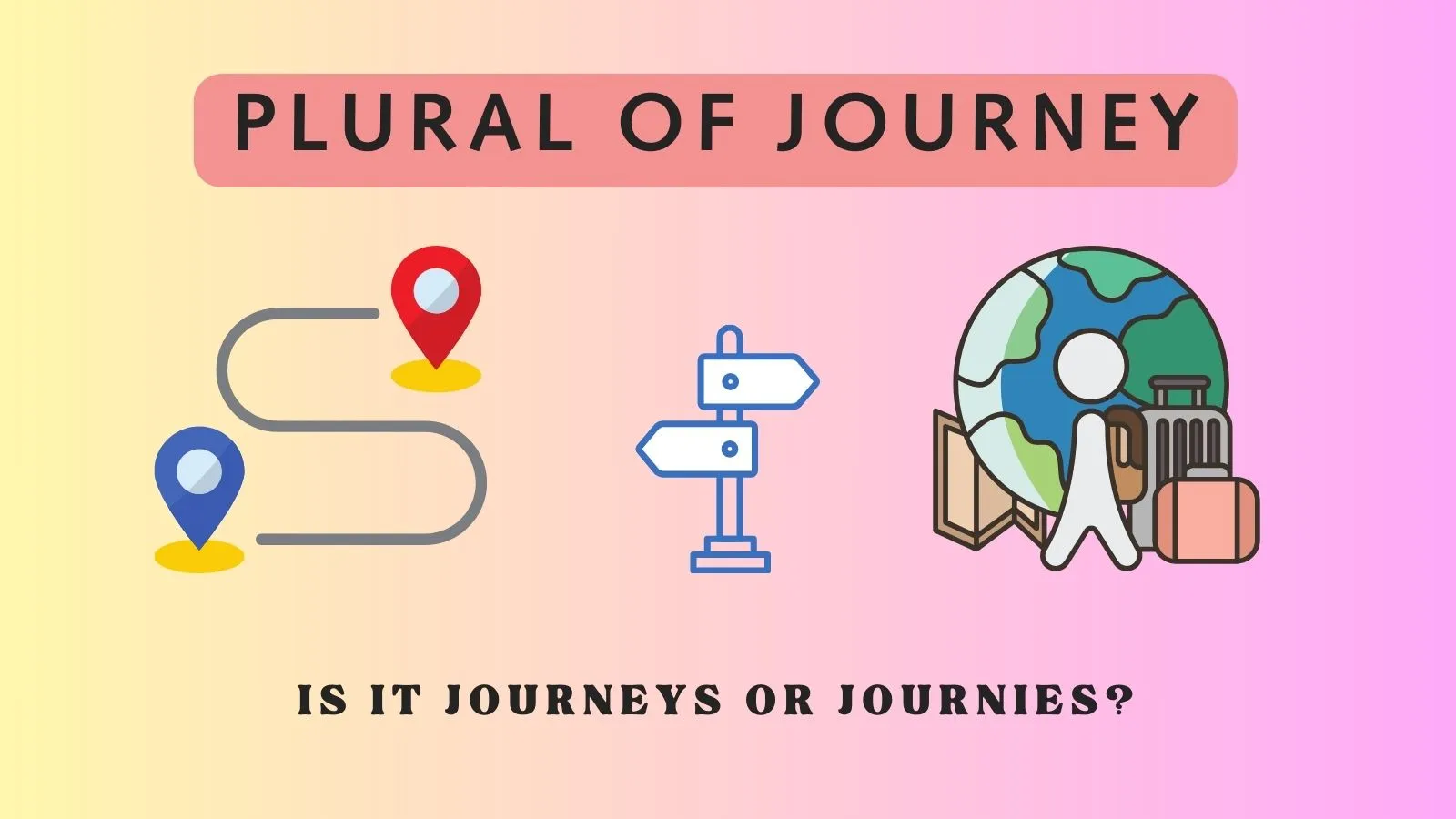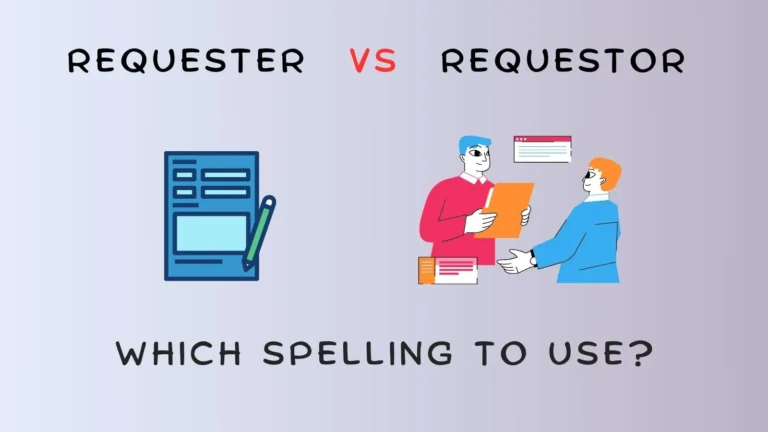Plural of Journey: Is It Journeys or Journies?
We’ll cut right to the chase: when it comes to the plural of journey, many English learners stumble, but luckily, the answer is straightforward once you understand a key spelling rule. The correct journey plural form is “journeys,” not “journies.” Just add an “s” to “journey” – that’s it! This follows the rule for words ending in “y” preceded by a vowel, like “key” to “keys.” Let’s explore what else you should know about “journeys.”
Quick Walk Through
- The correct plural of journey is journeys, not journies.
- Nouns ending in “y” preceded by a vowel simply add an “s” to form the plural.
- Words like “key” and “toy” follow the same pluralization rule as “journey.”
- For words ending in “y” after a consonant, the “y” changes to “i” and “es” is added for the plural.
- Understanding the rules for pluralizing words ending in “y” helps determine the correct plural form of “journey.”
Why are people curious or confused?
Many English learners find themselves perplexed when attempting to pluralize the word “journey.” It’s a common source of confusion stemming from a misunderstanding of English spelling rules.
Some assume the plural of journey is “journies,” following the pattern of words like “baby” (babies) or “city” (cities). However, this assumption overlooks the rule that when “y” follows a vowel, we simply add “-s” to form the plural. Since “journey” has “y” after the vowel “e,” the correct plural form is “journeys.”
Knowing this rule helps us confidently determine the proper plural for similar words ending in “y.”
Journeys or Journies: The Correct Plural of Journey
Let’s clear up the confusion: the correct plural of “journey” is “journeys,” not “journies.” We form the plural by simply adding “-s” to the end of “journey,” following the rule for pluralizing words that end in “y” preceded by a vowel.
Other examples that adhere to this rule include “key” becoming “keys” and “toy” becoming “toys.” In contrast, words ending in “y” after a consonant, like “city,” change the “y” to “i” and add “-es,” resulting in “cities.”
Remembering this straightforward rule will help you consistently form the proper plural for journey and similar words.
What Does “Journey” Mean?
Now that we’ve clarified the proper plural form, it’s worth exploring the meaning of “journey” itself. A journey refers to the act of traveling from one place to another. It can be a literal trip or voyage, or used metaphorically to describe personal or emotional experiences.
We often associate journeys with significant or meaningful travel. In a metaphorical sense, we speak of journeys of self-discovery or growth. Historically and in fiction, we’re captivated by the journeys of great explorers and story protagonists. While the plural “journeys” follows a simple rule, the concept itself holds profound meaning.
Words That Follow the Same Rule as “Journeys”
Understanding the plural of journey as journeys can help us remember the rule for similar words. When a noun ends with “y” preceded by a vowel, we simply add an “s” to make it plural. This applies to words like:
| Singular | Plural |
|---|---|
| key | keys |
| toy | toys |
| journey | journeys |
In contrast, when “y” is preceded by a consonant, we change the “y” to “i” and add “es”. For example:
| Singular | Plural |
|---|---|
| puppy | puppies |
| city | cities |
| family | families |
Examples in different Contexts: Journeys vs Journies
Journeys, the correct plural form of journey, appears in various contexts across literature, popular culture, and everyday life.
- In literature, we often read about characters setting out on, commencing, or undertaking epic journeys, both physical and metaphorical.
- Pop culture references, like the band Journey or the saying “life is a journey, not a destination,” reinforce the correct spelling.
- We discuss our own travels as journeys, whether weekend road trips or international adventures.
- Even in casual conversation, we’re more likely to hear “journeys” than the incorrect “journies,” as the plural form is widely understood.
Synonyms for Journey
Let’s examine some synonyms for the word “journey” that capture its essence while providing variety in our language.
- A trip is a short or long travel experience, often for leisure or business.
- A voyage is an extended journey, frequently by sea or through space.
- An expedition is a journey undertaken for a specific purpose, such as exploration.
- An adventure is an exciting or unusual journey that may involve risk.
Whether we set out on a literal voyage or a metaphorical journey of personal growth, the plural form is consistently “journeys.” Expanding our vocabulary empowers us to express the nuances of our journeys with precision.
Etymology of “Journey
The word “journey” has an intriguing history that traces back to the 12th century. It originated from the Old French word journée, meaning a day’s work or travel. Journée itself derived from the Vulgar Latin diurnum, referring to a day.
Initially, “journey” denoted the distance one could travel in a single day. By the 13th century, its meaning expanded to encompass general travel by land or sea. Later, “journey” took on metaphorical meanings, describing life’s paths.
When pluralizing this word, remember that “journeys” is correct, as the “y” follows a vowel. The plural “journies” is a common misstep.
Frequently Asked Questions
-
Is “Journeies” an Acceptable Alternative Spelling for the Plural of “Journey”?
No, “journeies” isn’t an acceptable alternative spelling. Although it’s a common mistake, the correct plural is “journeys.” When a word ends in “y” after a vowel, we simply add an “s” to pluralize it.
-
Can “Journey” Be Used as a Verb, and if So, How Is It Conjugated?
Yes, we can use “journey” as a verb! It’s an intransitive verb meaning to travel. Here’s how it’s conjugated:
I/you/we/they journey
He/she/it journeys
I/he/she/it journeyed
You/we/they journeyed
I/you/he/she/it/we/they will journey -
What Is the Plural Form of “Journey” in Other Languages, Such as French or Spanish?
Let’s explore how other languages form the plural of “journey.” In French, it’s “voyages,” while in Spanish, it becomes “viajes.” These plurals follow each language’s unique rules, differing from the English -s or -ies endings.
-
Are There Any Exceptions to the Rule for Pluralizing Words Ending in “Y”?
We’ve found a few exceptions to the “y” pluralization rule. For example, lay becomes lays, pay becomes pays, and buy becomes buys. The key is whether a vowel precedes the “y.” It’s tricky but fascinating!
-
How Does the Pronunciation of “Journey” Change When It Is Pluralized?
When we pluralize “journey” to “journeys,” the pronunciation doesn’t change much. We still stress the first syllable “JURN” and pronounce the unstressed syllable “-eys” the same as in the singular form.
-
How Do you spell journeys?
There are different ways to spell journey If you’re ever in doubt about spell journey, a fun tip is to break the word down into its components: “jour” and “neys.” This way, you can easily remember that it has that unique “jour” sound at the beginning. So next time you think about your own journeys be it a road trip with friends or a new chapter in life you’ll be confident in how to spell it!
Final Verdict
We’ve journeyed through the intricacies of the word “journey,” and it’s ironic how a simple question about its plural form can lead us on such an enlightening linguistic adventure. As we’ve discovered, journeys is the correct plural, following the standard rule for words ending in “-ey.” So, the next time you find yourself contemplating this question, remember: it’s not the destination that matters most, but the journeys we take to get there.



